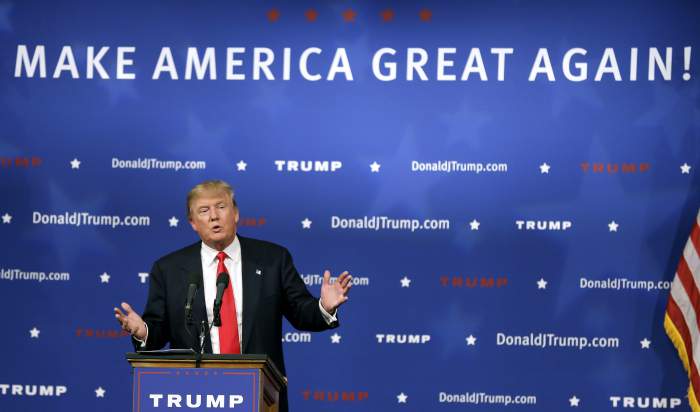Despite having little-to-no vested interest in American domestic policy, Canadians have been fixated by the American election. They wouldn’t be directly affected if Donald Trump repealed and replaced Obamacare, or if Hillary Clinton decided to implement debt-free college for American students. Nonetheless, Canadians are very interested in debating these issues and seem willing to throw their rather fruitless support behind a candidate. However, the debate among Canadians might be centred around the wrong issues. Trump’s border wall won’t directly affect Canada, but less discussed issues like the North American Free Trade Act (NAFTA), diplomatic relations, and U.S. foreign policy should concern Canadians a great deal.
One of Donald Trump’s key policy proposals is to renegotiate or withdraw from NAFTA if he doesn’t get a better deal. Both would prove costly to Canadian industry and consumers. The U.S. is Canada’s largest trading partner. Three quarters of Canadian exports go to the U.S. and one in five jobs in Canada depend on exports, which means that 15 per cent of Canadian jobs depend on the US buying Canadian goods. Many of these facts are due to NAFTA. With the elimination of tariffs between the U.S. and Canada, key Canadian exports, such as lumber, seem cheaper to American consumers, who are therefore more likely to buy them. If Trump erects tariffs on Canadian goods, Canada’s logical recourse would be to do the same with American goods. While most McGill students are probably not going to find a fall in softwood lumber exports terribly exciting, they will definitely feel the pinch of a Trump presidency when American-sourced groceries become more expensive at Provigo.
Beyond the souring of trade relations, Trump’s values are too far out of line with those of Prime Minister Trudeau to facilitate common ground and continue the close relationship that the two nations share. Nowhere is this more evident than in immigration policies. Trump is campaigning on barring Muslims from entering the U.S. by implementing a religious tests for immigrants. Conversely, Trudeau proposed during the Canadian election campaign to increase the number of Syrian refugees admitted into Canada and present a message of Canadian diversity (he surpassed his target of 25,000, admitting 56,000 refugees this year). There have already been disputes over the Canada-U.S. border being too porous, and concerns from American politicians and pundits that terrorists may try to enter the U.S. through Canada. A similar concern led the U.S. to begin requiring Canadians to use a passport to enter the country after 9/11. With Trump in the White House, drastically different approaches to immigration and diversity on each side of the border could seriously damage relations between Canada and the U.S.
However, border crossing issues will seem like niggles compared to potentially seeing Vladimir Putin visiting the White House. Trump’s love for Putin is one of his more indefensible policies. While a closer U.S.-Russia relationship may not immediately seem to affect Canada, the implications could be immense. Canadian troops are currently stationed in the Ukraine on a training mission. More troops and ships are in Latvia conducting military exercises to support NATO allies that fear Russian aggression. If the U.S. softens traditionally tough stance on Russia, it would embolden Putin to annex more territory and Canadian troops could find themselves in embroiled in a proxy war with Russian troops. Without US support in deterring Russia, Canadian forces could find themselves defending a NATO ally, like Latvia, without American support.
When debating the U.S. election, Canadians often focus on the wrong issues. The future of NAFTA, diplomatic relations with the U.S., and the safety of Canadian troops in Eastern Europe are more relevant to Canadians than Trump’s tax returns. Trump vastly compromises Canada’s national interests in all three of these key areas. While it’s somewhat pointless for Canadians to back a presidential candidate given that they can’t vote, it should be abundantly clear to them which of the two candidates presents a clear danger to Canadian trade, diplomatic, and security interests.









